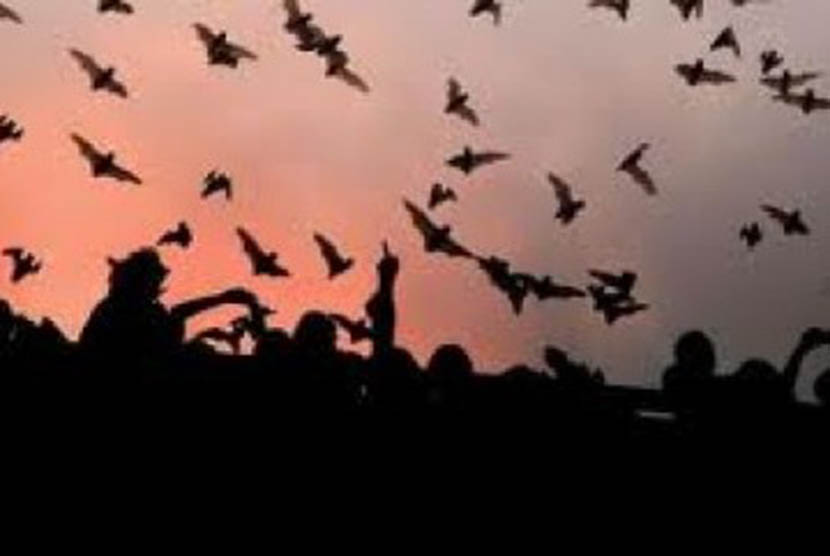Many of the world’s Muslims have begun Lent – for the second time during the pandemic. In most countries, oral protection is compulsory in mosques, which must not be filled to their full capacity.
 –
–
Quran reading with mouth guard waiting to break the fast during Ramadan’s first day in Jakarta on Tuesday.
—
This week begins Ramadan for millions of Muslims – at the same time as many countries are faced with a new wave of coronavirus. The hopes of a more normal fasting month than last year are dashed, even though the restrictions differ between different countries.
Ramadan is characterized by fasting, prayer and charity, but is also a time when people usually gather to pray together, visit relatives and friends and break the fast with a long-awaited meal. And despite infection control measures, there are concerns that the month’s joint rituals will result in an increase in the number of cases of covid-19.
“We are very concerned that what happened during the last Ramadan will be repeated, especially as Ramadan coincides with another important holiday, (the Orthodox) Easter.”
In Indonesia’s capital, people have been welcomed to Southeast Asia’s largest mosque, Istiqlal, which has been closed for more than a year due to the pandemic. Jakarta resident Mohamad Fathi thinks that this year’s Lent is filled with more joy than last year, when people were forbidden from gathering for the evening prayer tarawih.
– Last year was depressing because we were not allowed to go to the mosque for tarawih, he says to the news agency AFP.
– But this year I am so happy that we can do it, even though there is a strict health protocol that we must adhere to during prayer.
In Indonesia, which has the world’s largest Muslim population, mosques are only half full, visitors must wear mouth guards and bring their own prayer mat. Several regions have banned people from gathering to break their fast and called on those living in particularly affected areas to pray at home.
Some of Islam’s holiest sites are in Saudi Arabia. There, Muslims who have been vaccinated against covid-19 are allowed to carry out the smaller pilgrimage umra.
In Egypt, the restrictions are milder than during last year’s Lent. Since then, most mosques have been allowed to open for Friday prayers and during Ramadan they will also be allowed to hold evening prayers – albeit with restrictions such as a shortened ceremony.
Ramadan
Ramadan is the month of fasting in Islam and one of the five pillars.
It is the ninth month in the Islamic calendar and falls at different times of the year as the Muslim year follows the moon. This year, the month of fasting begins this week.
Those who fast do so during the hours when the sun is up.
By abstaining from food, drink and sex from dawn to dusk, Muslims must learn patience and humility, purify the soul and ponder the commandments of religion. It is also a time for socializing with family and friends.
Anyone who is ill or has any other health condition that makes fasting harmful does not need to fast. In addition to the sick, pregnant women, children and the elderly can also be excluded.
—
Read more about the celebration in Malmö:
–


